admin
03 February 2025
No Comments
A packed hall at the National Institute of Technology (NIT) Tiruchirappalli recently played host to a thought-provoking lecture by Professor Ashok Sharma, a distinguished academic and industry veteran. The event, organized by the Metallurgical and Materials Engineering Association (MMEA) in association with the Paani ki bund Foundation, an NGO, focused on bridging the gap between industry expectations and fresh engineering graduates, culminating in a crucial discussion on the recycling of aluminum alloys and its importance in environmental sustainability.
Professor Sharma, formerly a Professor and Dean at MNIT Jaipur and currently a visiting faculty member at the Norwegian University of Science and Technology, brought a wealth of experience to the stage. His expertise, further solidified by his co-authorship of the renowned text “Heat Treatment Principles and Techniques,” provided a solid foundation for the day’s discussions.
The first session, “Bridging the Gap,” addressed the critical skills and knowledge that industries demand from new engineering graduates. Professor Sharma emphasized the need for a curriculum that not only imparts theoretical knowledge but also fosters practical skills, problem-solving abilities, and a strong understanding of industry trends. He stressed the importance of communication, teamwork, and adaptability in today’s rapidly evolving technological landscape. The session proved invaluable for students preparing to enter the workforce, educators seeking to refine their teaching methodologies, and professionals looking to stay abreast of the current talent pool.
The second part of the lecture shifted focus to a topic of increasing global importance: “Recycling of Al Alloys.” Professor Sharma highlighted the critical role of aluminum recycling in building a sustainable future. He explained the latest techniques and advancements in the field, emphasizing the environmental benefits of reducing our reliance on primary aluminum production. He eloquently connected the process of recycling with the preservation of natural resources, the reduction of energy consumption, and the minimization of greenhouse gas emissions.
“Recycling aluminum isn’t just about recovering a valuable material,” Professor Sharma stated, “it’s about safeguarding our environment for future generations. Every can, every component we recycle contributes to a cleaner, healthier planet. It’s a tangible way for engineers to make a real difference.” He further elaborated on the importance of efficient collection and sorting systems, the development of innovative recycling technologies, and the need for public awareness campaigns to promote responsible recycling practices. The collaboration with the Paani ki bund Foundation underscored this message, highlighting the crucial role of NGOs in raising environmental consciousness within communities.
The event, attended by students, faculty, industry professionals, and members of the public, provided a platform for insightful discussions and knowledge sharing. The program, which included a welcome address by Dr. D Nagarajan, Faculty Advisor, MMEA, an overview by Dr. S. Muthukumaran, HOD, MME Dept., NITT, and a vote of thanks by Dr. Nimu Chand Reger, Assistant Professor, MME Dept., served as a timely reminder of the critical role engineers play in shaping a sustainable future. Professor Sharma’s lecture successfully bridged the gap not only between academia and industry but also between engineering and environmental responsibility, leaving a lasting impact on all attendees.
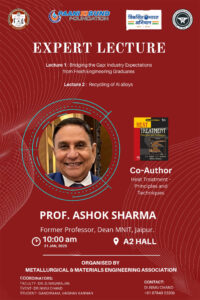
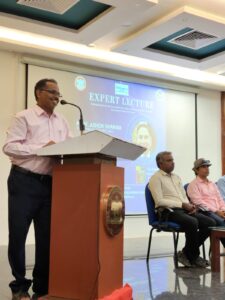
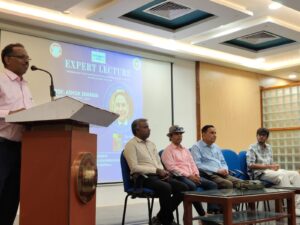
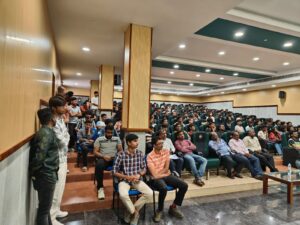


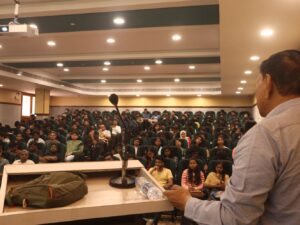
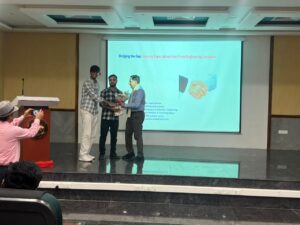

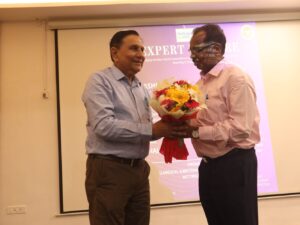
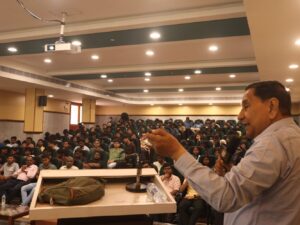


Leave a Reply